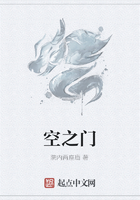SEEKING ASSOCIATES
1
I have told of my gradual abandonment of the pretensions and habits of party Liberalism.In a sense I was moving towards aristocracy.
Regarding the development of the social and individual mental hinterland as the essential thing in human progress, I passed on very naturally to the practical assumption that we wanted what I may call "hinterlanders." Of course I do not mean by aristocracy the changing unorganised medley of rich people and privileged people who dominate the civilised world of to-day, but as opposed to this, a possibility of co-ordinating the will of the finer individuals, by habit and literature, into a broad common aim.We must have an aristocracy--not of privilege, but of understanding and purpose--or mankind will fail.I find this dawning more and more clearly when Ilook through my various writings of the years between 1903 and 1910.
I was already emerging to plain statements in 1908.
I reasoned after this fashion.The line of human improvement and the expansion of human life lies in the direction of education and finer initiatives.If humanity cannot develop an education far beyond anything that is now provided, if it cannot collectively invent devices and solve problems on a much richer, broader scale than it does at the present time, it cannot hope to achieve any very much finer order or any more general happiness than it now enjoys.
We must believe, therefore, that it CAN develop such a training and education, or we must abandon secular constructive hope.And here my peculiar difficulty as against crude democracy comes in.If humanity at large is capable of that high education and those creative freedoms our hope demands, much more must its better and more vigorous types be so capable.And if those who have power and leisure now, and freedom to respond to imaginative appeals, cannot be won to the idea of collective self-development, then the whole of humanity cannot be won to that.From that one passes to what has become my general conception in politics, the conception of the constructive imagination working upon the vast complex of powerful people, clever people, enterprising people, influential people, amidst whom power is diffused to-day, to produce that self-conscious, highly selective, open-minded, devoted aristocratic culture, which seems to me to be the necessary next phase in the development of human affairs.I see human progress, not as the spontaneous product of crowds of raw minds swayed by elementary needs, but as a natural but elaborate result of intricate human interdependencies, of human energy and curiosity liberated and acting at leisure, of human passions and motives, modified and redirected by literature and art....
But now the reader will understand how it came about that, disappointed by the essential littleness of Liberalism, and disillusioned about the representative quality of the professed Socialists, I turned my mind more and more to a scrutiny of the big people, the wealthy and influential people, against whom Liberalism pits its forces.I was asking myself definitely whether, after all, it was not my particular job to work through them and not against them.Was I not altogether out of my element as an Anti-? Weren't there big bold qualities about these people that common men lack, and the possibility of far more splendid dreams? Were they really the obstacles, might they not be rather the vehicles of the possible new braveries of life?
2
The faults of the Imperialist movement were obvious enough.The conception of the Boer War had been clumsy and puerile, the costly errors of that struggle appalling, and the subsequent campaign of Mr.Chamberlain for Tariff Reform seemed calculated to combine the financial adventurers of the Empire in one vast conspiracy against the consumer.The cant of Imperialism was easy to learn and use; it was speedily adopted by all sorts of base enterprises and turned to all sorts of base ends.But a big child is permitted big mischief, and my mind was now continually returning to the persuasion that after all in some development of the idea of Imperial patriotism might be found that wide, rough, politically acceptable expression of a constructive dream capable of sustaining a great educational and philosophical movement such as no formula of Liberalism supplied.The fact that it readily took vulgar forms only witnessed to its strong popular appeal.Mixed in with the noisiness and humbug of the movement there appeared a real regard for social efficiency, a real spirit of animation and enterprise.There suddenly appeared in my world--I saw them first, I think, in 1908--a new sort of little boy, a most agreeable development of the slouching, cunning, cigarette-smoking, town-bred youngster, a small boy in a khaki hat, and with bare knees and athletic bearing, earnestly engaged in wholesome and invigorating games up to and occasionally a little beyond his strength--the Boy Scout.I liked the Boy Scout, and I find it difficult to express how much it mattered to me, with my growing bias in favour of deliberate national training, that Liberalism hadn't been able to produce, and had indeed never attempted to produce, anything of this kind.
3















